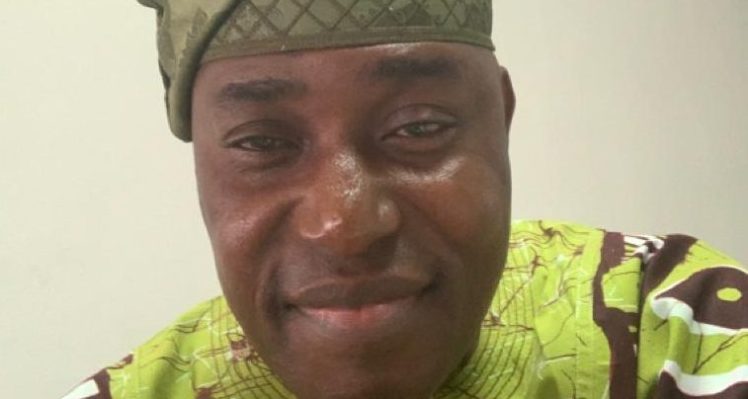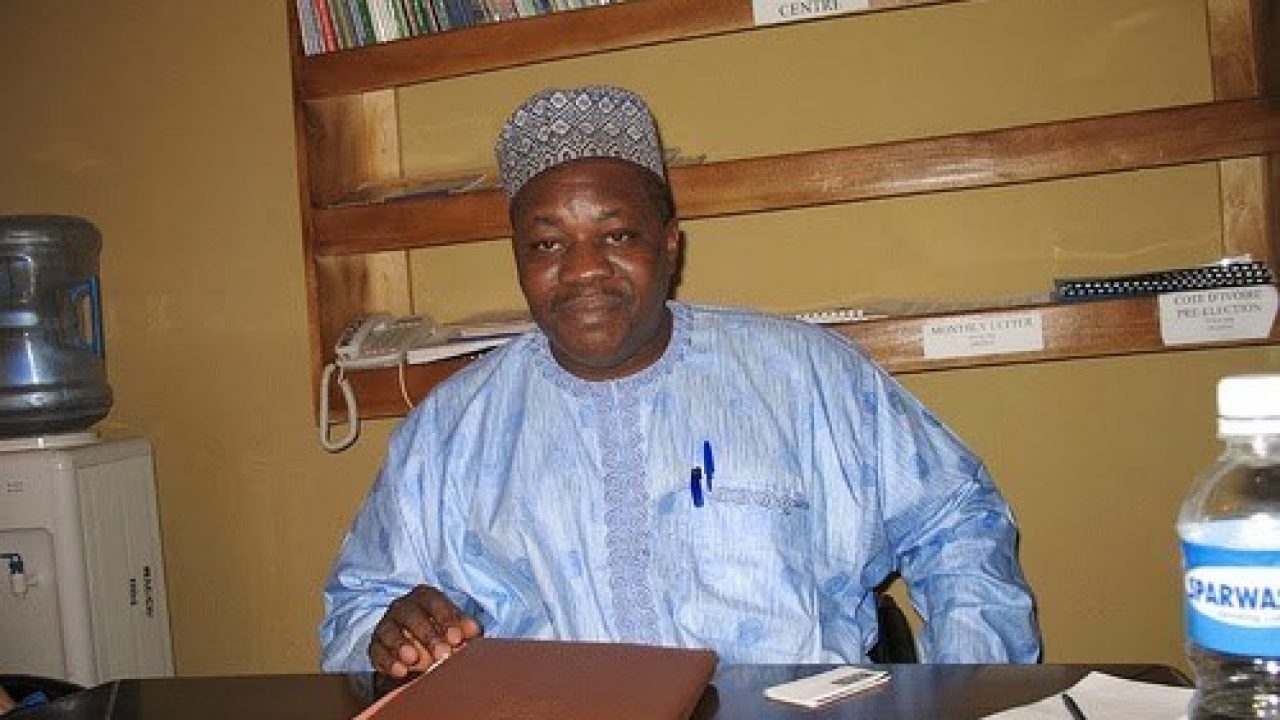The Buhari we shouldn’t find in Tinubu, By Martins Oloja
‘The greatest leader is not necessarily the one who does the greatest things. He is the one that gets the people to do the greatest things’
(Ronald Reagan)
It was in the light of the above powerful words of one of America’s greatest leaders, Ronald Reagan that I had joined good people three times here to encourage our outgoing leader, President Muhammadu Buhari to make history by getting good people around him to do one of the greatest things – signing the Electoral Act Amendment Bill into law to begin a clean process of leadership recruitment in our failing country. I had also then enjoined the President to embrace another critical issue that could enhance chances of making history: restructuring through return to federalism we lost since 1966. I had noted then that the lanky General from Daura could make history despite his apparently poor performance through restructuring of the electoral process and the polity.
I had then added that our leader should begin with calling the bluff of the retrogressive forces in APC, his Party and signing the Electoral Act Amendment Bill into law before the 2019 election, lest he would slip into the dark side of history. I had then written:
‘This is possible only with a sincerity of purpose as the driving force. This is what drives me to think that at the moment, the President needs encouragement more than condemnation from any quarters: He is surrounded at the State House, Abuja by only his kinsmen most of whom would not like to tell him what he could do to leave Nigeria better than he met it…’
As I was saying here too, specifically, in the beginning, the president didn’t have a great cabinet. It is beyond dispute that the presidential bureaucracy and the first cabinet in 2015 could not have helped him to make history. He failed then to realise that no leader could do well in office with a mediocre presidential bureaucracy and a cabinet of ordinary party supporters. After about six months of assuring the people that he was head hunting good and reliable thinkers, what he came up with was quite disappointing, after all. No insult is meant here, please. This is without prejudice to the few good ones in the cabinet who have been unequally yoked with mediocrities (not mediocres, please) that abound in the presidential palace. We are just discussing simple points in nation building within the context of the new world order that social and digital technologies daily disrupt.
Yes, only leaders who surround themselves with very smart managers can make history in the new world of business and politics.
What else can we deconstruct? Our president who curiously compressed his agenda to fighting corruption and insecurity in the last eight years has no remarkable baton to pass on to his successor. Can any honest observers today (apart from paid town criers) claim that our taciturn leader has really made history with fighting corruption and insecurity even in the North East Zone and North West zones where the evil ones are now permanently resident? Here is a piece of evidence: 98 out of 276 Chibok schoolgirls abducted on April 14, 2014 are still in captivity. Leah Sharibu, the only Christian schoolgirl left in Dapchi, Yobe state abduction captivity since 2018 is said to be giving birth to children by her unknown abductors in an unknown forest of the wicked. Despite all appeals she is still her captors’ den.
What is worse, the military establishment that we used to be proud of appears to have lost its mojo and myth under our out-going commander-in-chief. Even the presidency doesn’t believe in operational efficiency of the police force for internal security, anymore. We see the spirit of errors everywhere, especially in the North East and North West where the Air Force once erroneously bombed an IDP camp. We have lost so many officers of the Nigerian armed forces to insecurity in the North. That has since spread to all parts of the country. The other day, there was a supplementary budget of about one trillion naira to fight insecurity at the time university lecturers were gearing up for yet another industrial action. That is what happens when the illiterate of the 21st century are allowed to take charge as major state actors. That is the view of a writer on leadership and management, Alvin Toffler, who always muses on “rethinking the future”. According to the futurist, ‘The illiterate of the 21st century will not be those who cannot read and write but those who cannot learn, unlearn and relearn’. This is why most modern leaders always strengthen their governments with strong men and women who can learn, relearn and unlearn even in office.
Let’s look at the machinery for fighting corruption. There are three agencies comprising the Economic and Financial Crime Commission (EFCC), Independent Corrupt Practices and Other Related Offences Commission (ICPC) and Code of Conduct Bureau (CCB). The arrowhead here has always been the EFCC. But the President’s ruling party was once so disorganised that the first EFCC acting Chairman, Ibrahim Magu, nominated since November 2015, was not confirmed by the Senate dominated by the president’s party before he (Magu) was removed in 2021 over corruption allegations.
How else does one understand the politics in the presidency where the Secret Service chief executive twice wrote to the Senate that Magu should not be confirmed? Magu was somehow stranded for six years and even the influential Attorney General and Minister of Justice (who supervises EFCC) appeared to be at war with him throughout his turbulent tenure.
Curiously, Buhari’s presidency didn’t settle their rift. How can the president make history through his war on corruption when Magu too was once quoted as saying that he was losing the war? Even the ICPC chairmanship was once in a hibernation mode: a board member once acted as Chairman from July 2017 when the tenure of the Chairman expired in December 2018. Acting Chairman of EFCC since 2015. There was once an Acting SGF from May 2015; There were once so many ‘actors’ in office in Buhari’s presidency of anything is possible.
How could the president have made history with this kind of executive inertia and ad-hocism? I once noted here: ‘Can there be history making in fighting official graft without reforming the NNPC according to the new Petroleum Industry Act?Now there is a Petroleum Industry Act. But what has changed apart from the name of NNPC as a company limited by shares? Has NNPC changed its way in any fundamental sense? Again I once noted here: ‘That is why I feel we should begin to encourage the President to pay due attention to the Committee his party, the APC set up to prepare a blueprint on the hurricane called ‘restructuring’. There is some sense in that critical national assignment…’
Despite the fact that some president’s men may not like Malam Nasir el-Rufai’s face and politics, the Kaduna State Governor and chairman of the APC Panel on restructuring definitely has enough cognitive resources to handle the critical assignment. He gave the Party and the President a good document on restructuring since 2018. No deal till the present. The only trouble with the APC Committee may have been a vicious cabal around the President who might have been obsessed at that defining moment with politics of a second term without thinking about the implications of absence of major achievements in the first term..
In 2022, the President signed the Electoral Bill into law. That Electoral Act 2022 was to be a game changer in 2023 elections. But what game did it change despite the president’s repeated assurances that he would leave a legacy of free and fair elections? The 2023 elections that we should have hailed as the best in our history has turned out to be so controversial that even the winning party is still campaigning for validity and validation after elections. What is worse, even presidential mediocrity almost paralysed the country through a curious currency redesign on the eve of the elections. The scars even on our Supreme Court are sill there. What a legacy!
I also once wrote here:
‘But the president should note that if he continues to adopt I-don’t- care attitude to clamour for restructuring of the federation as most hawks around may advise, the consequences of the verdict of history may be harsh on him. He will go down in history as a military leader and politician who just wasted our time in office without any significant achievement…’
On June 7, 2020, I also wrote here about ‘Buhari’s presidency and near-success syndrome’. Then I quoted Socrates who said, ‘The secret of change is to focus all of your energy, not on fighting the old, but on building the new’. I also quoted Abraham Lincoln who reveals to us that, ‘Discipline is choosing between what you want now and what you want most’ to encourage our leader to be decisive.
It is quite important for us to understand what this enemy called ‘Near Success Syndrome’ (NSS) is all about. If several times, you have been so close to achieving a goal, dream or desire in your life but it seems like the moment you are on the verge of breakthrough, something comes and snatches it away from your grasp, you are welcome to the roots of this deadly syndrome. When this occurs, it can really hurt. That was the deadly virus that his party men were foisting on him in 2019 when they asked him to withhold assent from that significant electoral bill then. They won the 2019 election but lost the people’s organic mandate.
So, as the debate continues on all fronts about the place of the outgoing president Buhari in history, it is pertinent to remind the in-coming president that there is one fundamental objective he should adopt the morning after May 29: celebration of meritocracy! Buhari celebrated mediocrity for eight years. After 2023 elections, focus should shift to governance nurtured by nation building efforts. Doubtless, crass mediocrity nurtured by tribalism displaced Buhari from history making spots for eight years. That shouldn’t be an inheritance of a new government in Nigeria at this time.
First, the presidential bureaucracy comprising the Secretary to the Government of the Federation, (SGF), Head of the Civil Service of the Federation (HCSF), Chairman Federal Civil Service Commission, and the Chief of Staff to the President (imported into the bureaucracy) should be a solid foundation – for a ‘government of national competence’ as already desired. Then, there should be a Bill to the National Assembly on further dismantling of the behemoth called Exclusive Legislative List in the Constitution – to restructure the convoluted federation for a national culture of efficiency. President Buhari is still withholding his assent to a number of Bills on Constitution Review 2022. The alteration of the Constitution on the power sector is good but not enough for classic restructuring of the federation. Even the federal bureaucracy compounded by too many redundant agencies that carry unbearable wage bills is too burdensome for the nation. All told, there must be ‘Government of National Competence’ that has eluded us for so long. That is a part of Buhari that should not be found in Tinubu the morning after May 29, 2023.
Article first published by The Guardian




